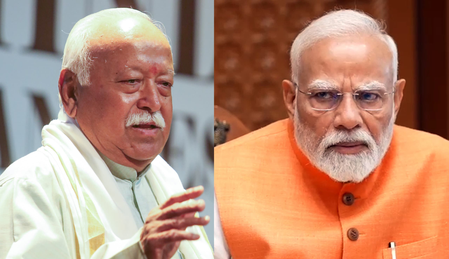New Delhi, April 29: In a development that signals a potentially seismic shift in India’s counter-terrorism strategy, Rashtriya Swayamsevak Sangh (RSS) chief Mohan Bhagwat met Prime Minister Narendra Modi at his official residence Tuesday evening. The meeting followed an emergency security review chaired by the Prime Minister in response to the Pahalgam terror attack that claimed 26 civilian lives.
The back-to-back meetings, both strategic and symbolic, come amid nationwide outrage over the April 22 massacre by Pakistan-based Lashkar-e-Taiba operatives. Earlier, Bhagwat had publicly urged the government to issue a strong response, saying, “There is pain in our hearts. We are angry. The duty of the king is to protect the people and teach hooligans a lesson.”
Earlier that day, PM Modi presided over a high-level security meeting with Defence Minister Rajnath Singh, NSA Ajit Doval, CDS Gen. Anil Chauhan, and the three service chiefs. According to government sources, the Prime Minister gave the armed forces full operational freedom to determine the mode, timing, and targets of retaliation, declaring India’s intent to deliver a “crushing blow to terrorism.”
The meeting focused on actionable intelligence and strategic options, while surveillance has been intensified along the Line of Control and Pakistan-occupied Kashmir. Satellite imagery, drone surveillance, and electronic intercepts are actively monitoring terrorist launchpads.
Parallel to the military buildup, India has taken diplomatic actions, including the suspension of the Indus Waters Treaty and the expulsion of Pakistani nationals on short-term visas.
Bhagwat’s visit to the Prime Minister’s residence after the security huddle adds political weight to the urgency of the situation. Together, these developments suggest that India’s response will be swift, decisive, and potentially redefine its approach to cross-border terrorism.









